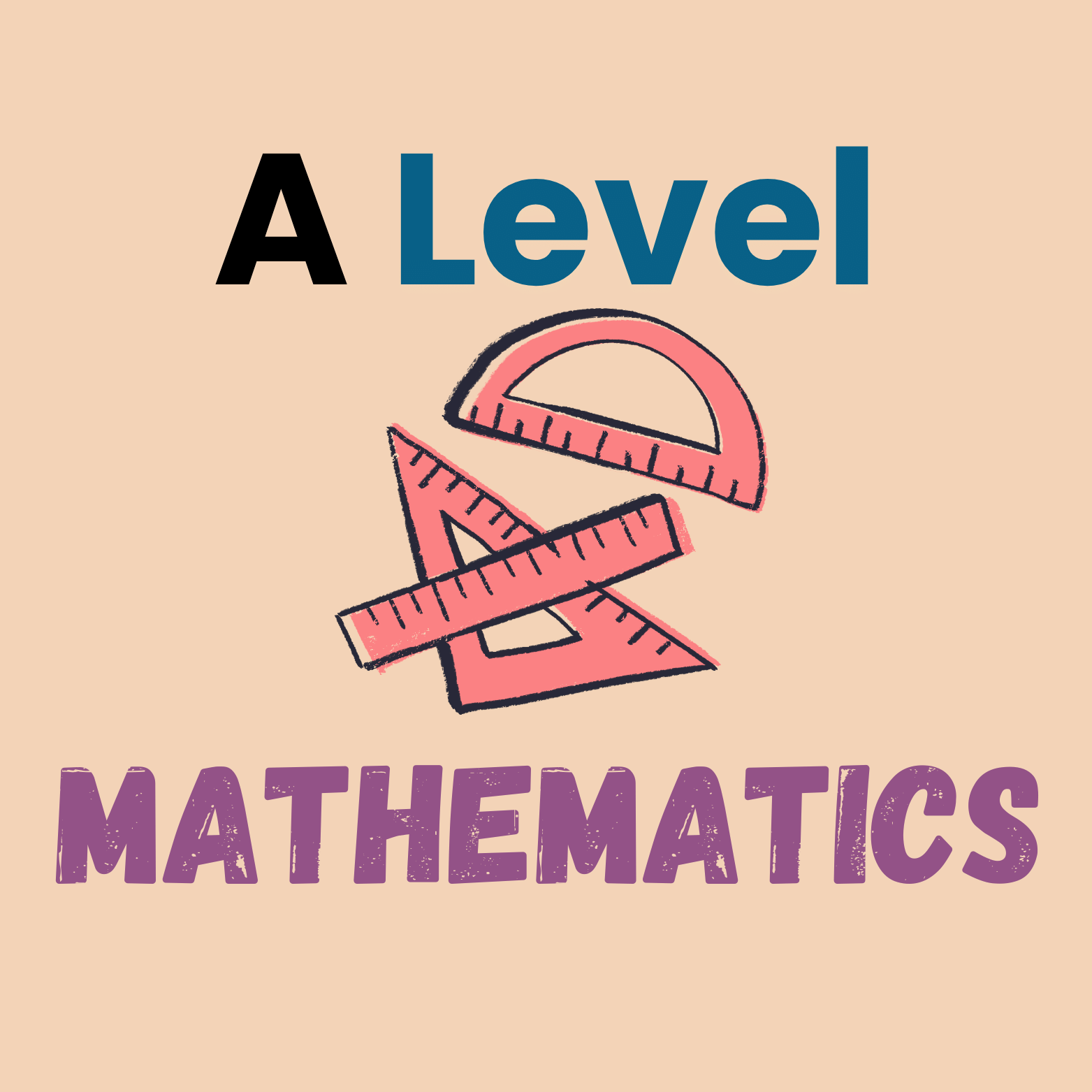
|
INFINITY COURSE
Mathematics for A Level269 students learning this week · Last updated on Oct 11, 2025 |
Mathematics for A Level Study Material
Trending Courses for A Level
Mathematics for A Level Exam Pattern 2025-2026
Mathematics for A Level Exam Pattern for A Level
When preparing for the A Level Mathematics exam, it is essential to have a clear understanding of the exam pattern. This knowledge will help you structure your preparation and allocate time accordingly to each section. Here is an overview of the exam pattern for A Level Mathematics:
1. Paper 1: Pure Mathematics
The first paper of the A Level Mathematics exam focuses on pure mathematics. This section assesses your understanding of fundamental concepts, problem-solving skills, and mathematical reasoning. It usually consists of a mix of multiple-choice questions, short answer questions, and longer problem-solving questions.
2. Paper 2: Pure Mathematics
The second paper of the A Level Mathematics exam also covers pure mathematics, but the questions are typically more challenging and require a deeper understanding of the subject. This section often includes questions that involve complex calculations, proofs, and more in-depth problem-solving.
3. Paper 3: Statistics and Mechanics
The third paper of the A Level Mathematics exam focuses on statistics and mechanics. This section assesses your knowledge and skills in these specific areas of mathematics. It often includes questions related to data analysis, probability, hypothesis testing, kinematics, and forces.
4. Paper 4: Further Pure Mathematics
The fourth paper of the A Level Mathematics exam covers further pure mathematics topics. This section is optional and is only required if you choose to study further mathematics. The questions in this paper are often more advanced and require a higher level of mathematical understanding and problem-solving skills.
5. Use of Technology
The A Level Mathematics exam allows the use of technology, such as calculators and graphing software. However, it is essential to practice solving problems manually as well, as some questions may not permit the use of technology. Familiarize yourself with the permitted technology and practice using it effectively to enhance your problem-solving abilities.
6. Time Management
One crucial aspect of the A Level Mathematics exam is time management. The exam duration may vary, but it is typically around two to three hours per paper. Allocate sufficient time to each section based on the number of marks assigned. Practice solving past papers within the time limit to improve your speed and accuracy.
By understanding and familiarizing yourself with the exam pattern for A Level Mathematics, you can effectively prepare for the exam and improve your chances of achieving a high score. Remember to practice regularly, seek clarification on any difficult concepts, and utilize available resources, such as textbooks and online materials, to enhance your understanding and confidence in the subject.
Mathematics for A Level Syllabus 2025-2026 PDF Download
- A Level Pure Mathematics (1, 2 & 3)
- A Level Differentiation- Limits & Derivatives
- A Level Differentiation- Continuity and Differentiability
- A Level Differential Equations
- A Level Mechanics
- A Level Probability and Statistics (1 & 2)
A Level Pure Mathematics (1, 2 & 3)
- Algebraic expressions and functions
- Quadratic functions
- Equations and inequalities
- Graphs and transformations
- Coordinate geometry
- Sequences and series
- Trigonometry
- Exponentials and logarithms
- Differentiation
- Integration
- Numerical methods
- Vectors
A Level Differentiation- Limits & Derivatives
- Introduction to limits
- Properties of limits
- One-sided limits
- Techniques for finding limits
- Definition of derivative
- Differentiation rules and formulas
- Chain rule
- Implicit differentiation
- Higher-order derivatives
- Applications of derivatives
A Level Differentiation- Continuity and Differentiability
- Continuity of functions
- Differentiability of functions
- Rolle's theorem
- Mean value theorem
- Curve sketching using differentiation
- Optimization problems using differentiation
- Related rates problems
A Level Differential Equations
- Introduction to differential equations
- First-order differential equations
- Second-order differential equations
- Homogeneous and non-homogeneous differential equations
- Systems of differential equations
- Applications of differential equations
A Level Mechanics
- Introduction to mechanics
- Kinematics
- Forces and Newton's laws of motion
- Linear momentum and collisions
- Work, energy, and power
- Circular motion and gravitation
- Simple harmonic motion
- Elasticity
- Hydrostatics and fluid mechanics
A Level Probability and Statistics (1 & 2)
- Probability
- Discrete random variables and probability distributions
- Continuous random variables and probability distributions
- Sampling and estimation
- Hypothesis testing
- Correlation and regression analysis
- Probability distributions for multivariate data
- Probability generating functions
- Markov chains
Overall, this A Level Mathematics syllabus covers a wide range of topics in pure mathematics, differentiation, differential equations, mechanics, and probability and statistics. It provides students with a strong foundation in mathematical concepts and problem-solving skills, preparing them for further studies in mathematics or related fields.
This course is helpful for the following exams: Year 12, Year 13, A Level
How to Prepare Mathematics for A Level?
Preparing for A Level Mathematics can be a challenging task, but with the right approach and study techniques, it can become much more manageable. In this article, we will discuss some effective strategies to help you prepare for A Level Mathematics and achieve success in your exams.
1. Understand the Syllabus: Familiarize yourself with the A Level Mathematics syllabus, including the topics to be covered and the level of difficulty. This will give you a clear idea of what to expect and help you plan your study schedule accordingly.
2. Organize Your Study Materials: Gather all the necessary study materials, such as textbooks, past exam papers, and revision guides. Keep them well-organized so that you can easily access them when needed.
3. Create a Study Schedule: Develop a study schedule that includes dedicated time for each topic. Break down your study sessions into smaller, manageable chunks to avoid overwhelming yourself. Stick to your schedule and make sure to allocate sufficient time for practice and revision.
4. Seek Clarification: If you encounter any difficulties or have doubts while studying, don't hesitate to seek clarification from your teachers or classmates. Understanding the concepts thoroughly is crucial for success in A Level Mathematics.
5. Practice Regularly: Mathematics requires practice. Solve a variety of problems and exercises to reinforce your understanding and improve your problem-solving skills. Make use of past exam papers to familiarize yourself with the exam format and practice time management.
6. Review and Revise: Regularly review the topics you have studied to reinforce your understanding and identify any areas that require further attention. Revise key formulas, theorems, and concepts to ensure they are firmly ingrained in your memory.
7. Work on Exam Technique: Familiarize yourself with the exam format and practice answering questions within the given time limit. Pay attention to the marking schemes to understand how marks are allocated for each question. Develop effective exam techniques, such as reading questions carefully and showing all your working.
8. Join Study Groups: Consider joining study groups or forming study partnerships with classmates. Collaborative learning can help you gain different perspectives, share knowledge, and clarify doubts.
9. Take Mock Exams: Prior to the actual exams, take mock exams to assess your readiness and identify areas that need improvement. Analyze your performance and use it as a guide for further study and revision.
10. Stay Motivated: Mathematics can sometimes be challenging and frustrating. Stay motivated by setting realistic goals, rewarding yourself for achievements, and maintaining a positive mindset. Remember that with dedication and consistent effort, you can achieve success in A Level Mathematics.
By following these strategies and putting in consistent effort, you can effectively prepare for A Level Mathematics and increase your chances of achieving excellent results in your exams. Good luck!
Importance of Mathematics for A Level
Importance of Mathematics for A Level Course for A Level
Mathematics is a crucial subject for students pursuing A Level courses, as it provides a strong foundation for various fields such as engineering, physics, computer science, economics, and more. The A Level Mathematics course offered by EduRev equips students with essential mathematical skills and knowledge necessary for higher education and future career prospects.
1. Enhances Problem-Solving Abilities
A Level Mathematics helps students develop critical thinking and problem-solving skills. It encourages students to analyze and break down complex problems into smaller, manageable steps. By applying logical reasoning and mathematical techniques, students learn how to approach and solve real-world problems efficiently.
2. Provides a Solid Foundation
Mathematics is considered the language of science and technology. A Level Mathematics course builds a solid foundation in mathematical concepts, including algebra, calculus, trigonometry, and statistics. This foundation is essential for students pursuing higher education in STEM (Science, Technology, Engineering, and Mathematics) fields.
3. Enhances Analytical Skills
Studying Mathematics at the A Level helps students develop strong analytical skills. They learn to collect, analyze, and interpret data, which is crucial in fields such as economics, finance, and research. These analytical skills enable students to make informed decisions and draw logical conclusions based on mathematical evidence.
4. Supports Higher Education
Mathematics is a prerequisite for many degree programs in universities and colleges. A Level Mathematics provides students with the necessary mathematical background required for further studies in various fields, including engineering, physics, computer science, economics, and more. It opens up a wide range of opportunities for higher education.
5. Enhances Problem-Solving Abilities
A Level Mathematics not only develops problem-solving abilities but also enhances logical thinking and reasoning skills. It trains students to think critically and approach problems from different perspectives. These skills are highly valued in today's competitive job market and are sought after by employers in various industries.
In conclusion, A Level Mathematics is of utmost importance for students pursuing A Level courses. It provides a solid foundation in mathematical concepts, enhances problem-solving and analytical skills, and supports higher education in diverse fields. By enrolling in the A Level Mathematics course offered by EduRev, students can unlock their full mathematical potential and pave the way for future success.
Mathematics for A Level FAQs
| 1. What is A Level Mathematics? |  |
| 2. What are the benefits of studying A Level Mathematics? |  |
| 3. What topics are covered in A Level Mathematics? |  |
| 4. How long does it take to complete A Level Mathematics? |  |
| 5. Can I study A Level Mathematics without having taken it at GCSE level? |  |
| 6. How is A Level Mathematics assessed? |  |
| 7. What are the grade requirements for A Level Mathematics? |  |
| 8. Can I use a calculator during the A Level Mathematics exam? |  |
| 9. Are there any resources available to help with studying A Level Mathematics? |  |
| 10. How can I improve my performance in A Level Mathematics? |  |
| 11. What are the career options for someone with A Level Mathematics? |  |
| 12. Can A Level Mathematics be useful in everyday life? |  |
| 13. What is the difficulty level of A Level Mathematics? |  |
| 14. Can I retake A Level Mathematics if I am not satisfied with my grade? |  |
| 15. How can I prepare for the A Level Mathematics exam effectively? |  |
Best Coaching for Mathematics for A Level
Tags related with Mathematics for A Level

|
View your Course Analysis |

|

|
Create your own Test |

|

































